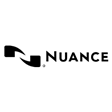AI has the potential to make all of our lives easier and we see the beginnings of this already, says Nuance Communications Intelligent Engagement SVP omni-channel solutions & analytics Tony Lorentzen.

For the uninitiated can you briefly outline Nuance Communications’ main interests in broadcast service providers at this time?
The TV is the central hub of an increasingly smart and connected home, and voice-powered interfaces are playing a growing role. Ease of use is one of the main decision aspects for a consumer to stay with a provider or switch to a competitor. By offering innovative speech and conversational AI capabilities to broadcast service providers, they can offer subscribers an unprecedented, personalised viewing experience. Nuance technology opens new revenue and engagement opportunities to [customers to] differentiate their brands from others in the market.
Nuance’s Dragon TV has picked up multiple plaudits and awards, including a 2017 Technology Emmy. What are the main features and benefits of this system?Nuance is proud of how well our technology has been received in the market. Dragon TV makes it easy for subscribers to access the content that the broadcast service provider (BSP) offers. Nuance has been in the AI and speech technology market for more than 20 years, and with Dragon TV we are using these technologies to simplify the way subscribers navigate through their TV – from simple commands (‘switch channel to’) to content search (‘show me all movies with Julia Roberts’) to more customer service-oriented requests (‘can I upgrade my TV package?’).
All of these interactions have to be secure; for the subscriber the BSP [needs to meet] strict privacy standards, and the BSP must be certain that only authorised subscribers can access the system.
If you had to pick a few milestones from the company’s recent history, what would they be and why?
Just recently we surpassed one billion monthly transactions, meaning Dragon TV and its voice-enabling capabilities are used for commands, search and navigation for more than one billion times per month across the globe. Also, across all of our deployments, more than 70% of users who used their voice instead of the remote in the first month are still using it six months later. And finally, as mentioned before, winning a Technology & Engineering Emmy Award in the Contextual Voice Navigation for Discovering and Interacting with TV Content category was a huge honour for Nuance.
How would you characterise the current level of interest in AI-based systems, and what impact is this having on your R&D?
As pioneers in conversational AI, we’ve spent decades quietly revolutionising human interactions with technology, becoming a trusted partner to 85% of Fortune 100 companies. We lead by listening, customising and implementing solutions to the unique aspirations of those we serve. Nuance’s global research and development team includes more than 2,800 researchers, speech scientists and engineers focused on AI research and applications pertaining to speech enhancement, recognition and synthesis, natural language understanding and dialogue, biometrics and diagnostic imaging.
How do you perceive the roadmap for AI in broadcast over the next 2-3 years?
AI has the potential to make all of our lives easier and we see the beginnings of this already. If you look at AI more broadly, you’ll see a lot of interesting opportunities – from interacting with TV shows and movie content to augmented reality integration. When it comes to customer experience, navigation of the content will be more intuitive and personalisation based on usage data is going to be more accurate. Thanks to improvements in biometrics technology, the TV will provide a highly secure environment.
Can you briefly outline the company’s main plans and priorities for IBC2019?
IBC has been and continuous to be an important show for Nuance. We always look forward to meeting business and technology thought leaders to discuss the future of this cutting-edge space. Not only does it allow us to meet carriers who want to shape their future offerings, it also opens up a new view of the broadcast market, highlights all the upcoming trends, and helps us to understand where the market is going so we can keep innovating our own technology.
In what ways does IBC help Nuance in extending its market knowledge and contacts, and shaping its future strategy?
IBC brings together the global leaders and Nuance considers this event a hub of innovation and progress. We’ve built long-term partnerships here and we continue to see those partnerships as one of the most important aspects of success – theirs and ours. Collaboration is key and understanding where the market is going helps to define the next era of TV – from user experience design to the use of specific technologies, such as AI. [There are always plenty of] innovations around the corner, or in the case of IBC around the next booth.


























No comments yet